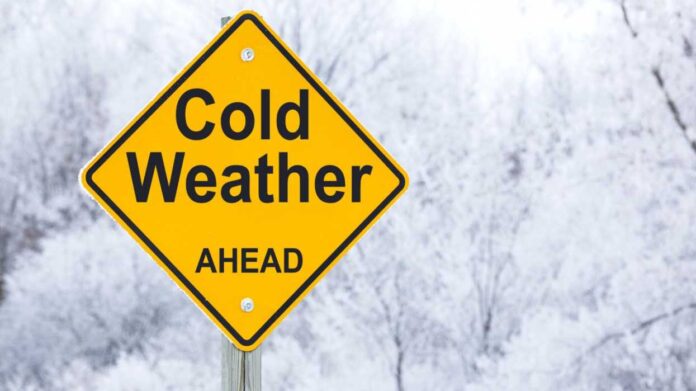CULLMAN, Ala. – Brrr! Extreme cold temperatures are coming our way, which means your home will be working in overdrive to keep you and your family warm. Turning everything off when you leave a room can reduce energy consumption and save you money on your power bill.
To learn more winter energy savings tips, visit www.cullmanec.com/winter-energy-savings-and-conservation-tips.
Winter energy savings and conservation tips
How can you save on heating costs this winter? Some answers to that question are basic: turn down the thermostat a few degrees from where you would typically keep it and dress in layers. Keep your feet warm and have plenty of extra blankets around.
Most people like to pull up the covers at night when it’s cold outside. Add extra blankets, flannel sheets and a thick comforter so that you can turn down your thermostat while you sleep.
It also helps to use insulated or lined curtains to keep the cold air out in your bedroom and throughout your home. Another way to ensure your home is as energy efficient as possible is to get an energy audit before the cold wind hits.
The changes you make based on the audit could help you save energy costs this winter.
Other energy-saving tips include:
- Get your heating system regularly maintained and serviced by an HVAC professional so that it is working at peak efficiency. Keep your furnace clean, and change the filter monthly.
- DO NOT use the emergency heat setting on your heat pump just because it’s colder outside. A well-functioning heating system can keep up with normal winter temperatures. Plus, emergency heat costs more. If your primary heat pump goes out, this is the only time you want to switch to emergency heat.
- Regularly vacuum or clean vents.
- If you have a fireplace, keep the damper closed when not in use. If you do not use your fireplace, plug and seal the flume.
- Do not heat an empty home. A programmable or smart thermostat can help this become automatic. According to the Department of Energy, lowering the temperature by seven to 10 degrees for eight hours a day can reduce energy costs by up to 10%.
- A leaky house is expensive to heat. According to Energy.gov, sealing uncontrolled air leaks can save $83 to $166 annually. Weatherstripping double-hung windows can save $42 to $86 annually. Windows, doors, attics, attic access, outlets, walls and chimneys, and pipes entering or exiting your home are common sources of air leaks.
- Let the sunshine in your home during the day by using Mother Nature’s warmth. Close window coverings after dusk, however, to reduce heat loss.
- Run your ceiling fans in a clockwise direction. Doing so will push down and redistribute warm air that naturally rises.
- Consider turning down your water heater to 120 or 125°F. Also, install a water heater blanket to help insulate it and give it a step up in warming your water.
- When it comes time to replace your furnace or any part of your HVAC system, consider replacing it with an energy-efficient version by looking for the EnergyStar designation.
- Decrease the use of the built-in ventilation fans in your kitchen and bathrooms. In the colder months, they do an excellent job of transferring heat from inside your home to the backyard. Use the fans only when needed, and turn them off immediately.
- Bring in the moisture with a humidifier or research other ways to do that (e.g., well-watered plants or containers of water throughout the home). Dry air makes the air feel colder, and increasing moisture in the air causes indoor air to retain more heat.
For more information, visit www.CullmanEC.com/energy-and-money-savings-programs or www.SafeElectricity.org.
To learn more about how Cullman EC is preparing for extreme cold temperatures, visit www.cullmanec.com/cullman-electric-cooperative-prepared-next-weeks-extreme-cold-weather.





















